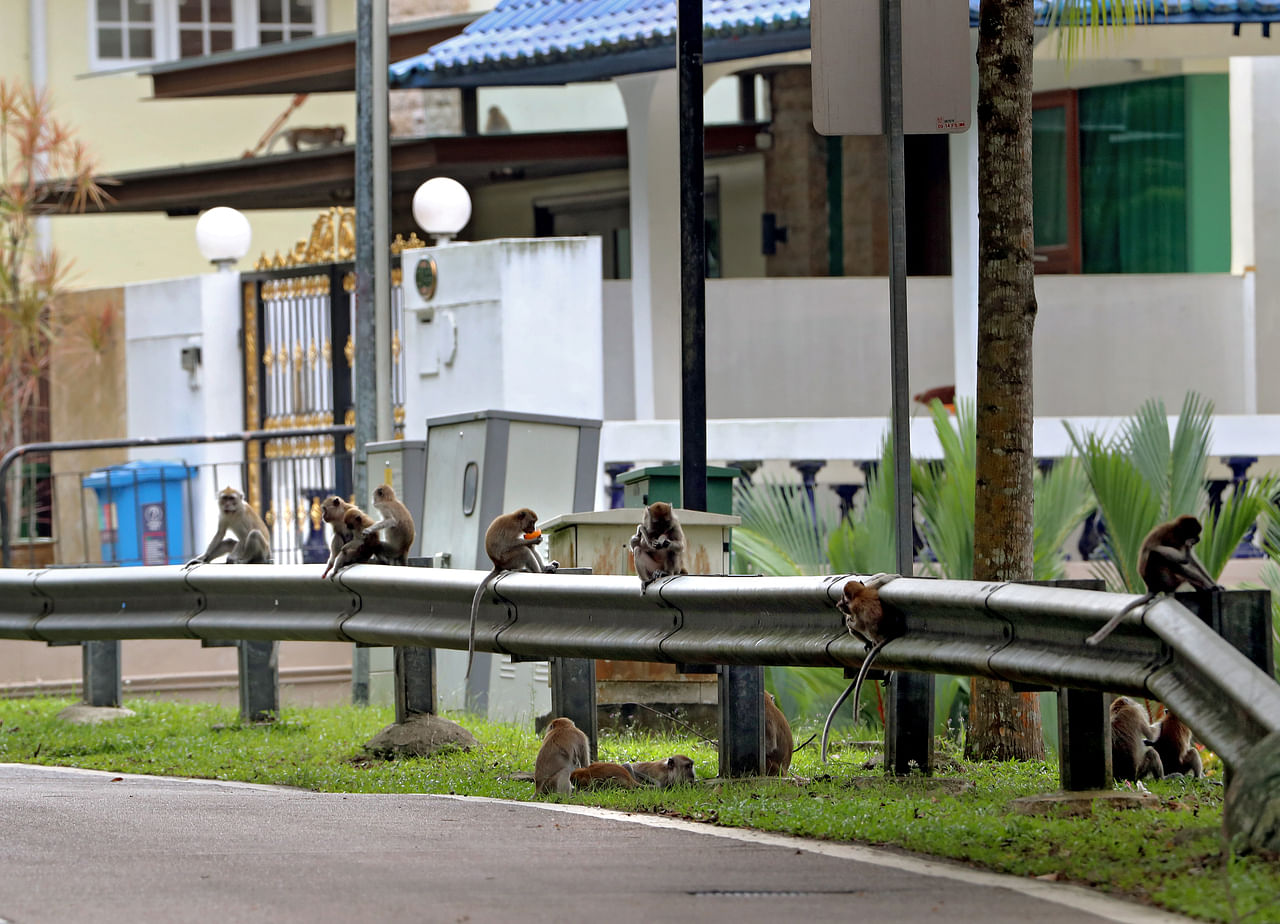Wildlife management framework enhanced to curb risk of human-wildlife conflicts
Sign up now: Get ST's newsletters delivered to your inbox

The framework aims to reduce conflicts between humans and wildlife through a multi-pronged approach.
PHOTO: LIANHE ZAOBAO
SINGAPORE - More building managers and security personnel will be trained by the National Parks Board (NParks) to carry out monkey guarding, as part of efforts to reduce conflicts between humans and wildlife.
This will herd and condition monkeys to stay away from a certain area, thus acting as an invisible barrier.
The agency will also build new partnerships with grassroots communities to get more members of the public involved in protecting biodiversity.
These are initiatives which come under the enhanced wildlife management framework that was announced on Saturday (May 21).
National Development Minister Desmond Lee, who was speaking at the opening of the Festival of Biodiversity at Botanic Gardens on Saturday, said: "As we conserve our biodiversity, we must also learn to better co-exist with nature.
"From time to time, there may have been run-ins with wildlife like otters, long-tailed macaques, crocodiles, hornbills and wild boars," he added.
"Sometimes, we may also face trickier situations, such as when animals wander into our homes. We will have to manage these encounters carefully."
NParks said the improved wildlife management framework will be anchored by community outreach and backed by science.
It will comprise four main prongs.
First, in terms of public education, NParks will conduct more online webinars, talks and programmes, and generate more publicity materials.
Second, in terms of community stewardship, NParks will work with stakeholders such as nature groups and academics to foster this.
It cited the example of Nature Kakis, a group that was formed in April by grassroots volunteers in the Boon Lay area. It has organised various nature-related programmes such as a webinar on living with nature.
"Over time, NParks aims to expand the group across the west of Singapore, and eventually, across the rest of the island," the agency said.
Third, in terms of population ecology, NParks said it will continue to conduct population surveys and research studies to better understand the distribution of wildlife throughout Singapore. This will help to identify areas for conservation and inform management strategies.
Fourth, in terms of population management, NParks will adopt an integrated approach. This includes habitat modification, exclusion measures, removal of food provision and direct population management options, such as translocation and sterilisation.

Education Minister Chan Chun Sing (front) and National Development Minister Desmond Lee at the Festival of Biodiversity at the Botanic Gardens.
ST PHOTO: GAVIN FOO
A spate of conflicts between people and wildlife have occurred in recent years, amid the shrinking availability of natural habitats for wildlife.
In March, a woman was knocked unconscious by a wild boar at Block 846 Yishun Street 81. The animal was eventually caught and euthanised.
Ms Huang Sipei, 37, secretary of Nature Kakis, said education is important in helping the public to better understand wildlife behaviour and their roles in the ecosystem.
"Nature is really right at our doorsteps, so we will inevitably come face-to-face with wildlife quite frequently," she added.
"Without understanding, there could be more conflicts."


